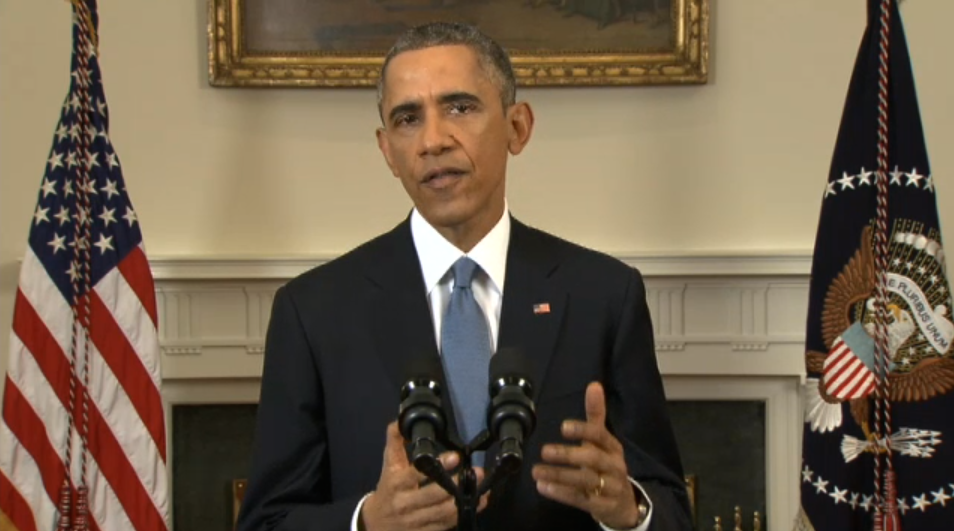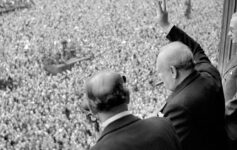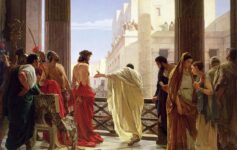It was seven years ago that President George W. Bush announced his Administration was doubling down on its bid to isolate the communist Cuban regime. More travel restrictions and more money restrictions, all with the end goal of bringing about leadership change and democratic reform. The President made his remarks at the State Department then returned to the White House. I was a young aide in the White House Press Office at the time and a group of colleagues and I ran into Bush in the East Room. He stopped to speak about Cuba, condemning the Castro regime and confidently, in that Cowboy swagger, affirming he had made the right decision in taking steps to further isolate the island nation.
But I was not happy. Cuba had always been near the top of my travel list but I was also a political scientist and historian by training, noting that by all metrics, the Embargo and onerous travel and communications restrictions had failed. I looked forward to the day when such restrictions would be lifted, believing that was the only avenue to true democratic reform in Cuba and rapprochement that would benefit both states.
When President Barack Obama entered office, he rolled back many of the travel restrictions enforced by the Bush Administration, including making it easier for Cuban-Americans to visit family members and for aid and missionary agencies to do work in Cuba. I applauded this change, but remained unsatisfied.
There is a 55-year propaganda war underway in Cuba to vilify America and its leaders and try to convince its citizens that they live in an island paradise. This is not something I read in the media, but something I saw first hand.
I traveled to Cuba in 2012 under a journalist licence from the Department of Treasury to write about Cuba’s aviation industry, but what captured my attention more than aviation was the bifurcated city of Havana — the area, the stores, the currency for the foreigners and the area, the stores, and the currency for the Cubans. I was in people’s homes and heard people’s stories — oh what an experience and one that I will share on these pages in the days to come.
It wasn’t just old cars, old Russian aircraft, and architecture that I saw — I was nearly arrested by a government agent who thought I was a spy and I spent a morning with a government minder whose sole duty it seemed was to extol the virtues of the Castro regime…what an experience! I also spoke to many Cubans who expressed open disdain for their government and a longing for reforms and closer ties to America.
Today, President Obama announced that the United States would begin to reestablish diplomatic relations with Cuba, re-opening an embassy in Havana and loosening travel restrictions for all Americans, not just for Cuban-Americans. Travel has always been legal to Cuba – but spending money there has been prohibited. That will change. The president said the US will take a “number of steps to significantly increase travel, commerce, and the flow of information to and from Cuba.” Bravo.
Tourism, it appears, will still be forbidden, but I would wager a guess that it will not be long before even tourism will no longer run afoul of U.S. prohibitions. Already, some 90,000 Americans per year travel to Cuba “illegally” for tourism.

Further, import bans will be lifted, allowing for Cuban cigars and rum, among other products, to enter the U.S. legally once again. Cynically perhaps, American companies will now be allowed to operate more freely in Cuba, providing many economic opportunities and perhaps…a McDonald’s in Havana?
Transforming Cuba into a state overrun with American cultural imperialism is a worry and so as soon as we see the specifics on the loosened travel restrictions, I recommend you get to Cuba as quickly as possible. Already we’ve seen reforms since even I have been there — the introduction of limited property rights and the ability to more easily import foreign automobiles. U.S. airline carriers already serve Cuba on a daily basis on charter flights, but the return of scheduled air service to Cuba, non-existent since 1961, is something I am really looking forward to.
The President struck the proper chord today in noting that loosening travel restrictions to Cuba will not solve the many human rights and democracy issues that continue to be of primary concern, but the status quo just was not working — the Castros remain in power more than 50 years later and repression remains a choice tool in the power toolbox of the authoritarian regime. Hopefully the new Congress will follow through with a formal end to the Embargo and thereby accelerate the process of normalization between the two nations. It is only when more Cubans have access to information outside what the party feeds them that they will demand the type of meaningful reform that will bring Cuba out of the failed system it continues to advance. This change in U.S. policy will surely help that come about.
Watch the President’s speech here–




Did I just hear the tourist industry in Florida, Bahamas, Puerto Rico, Virgin Islands etc make a loud sound similar to ‘gulp’.
More Canadians visit Cuba than any other country except Mexico and the USA.
Good luck for him to get Congress to approve this.